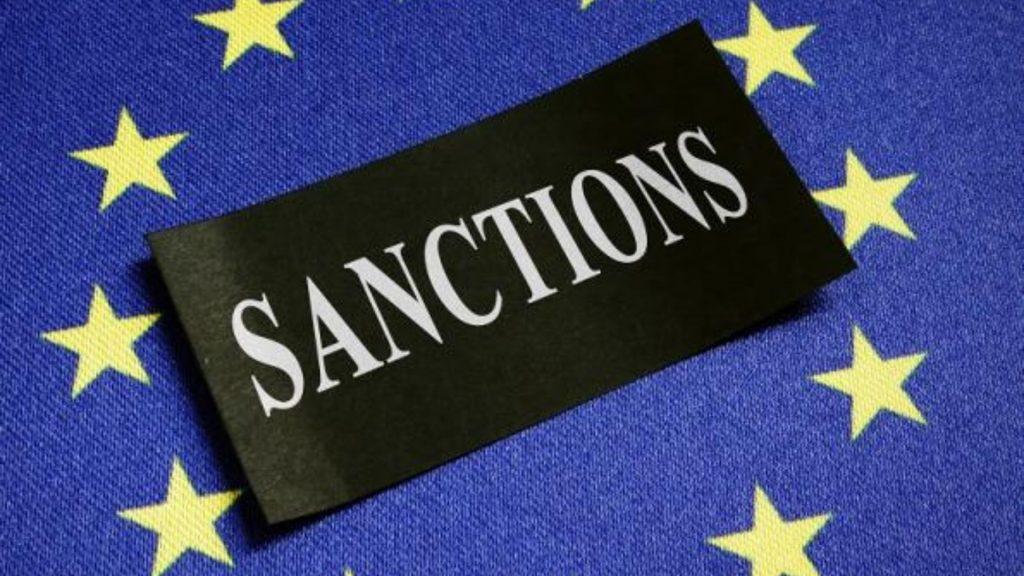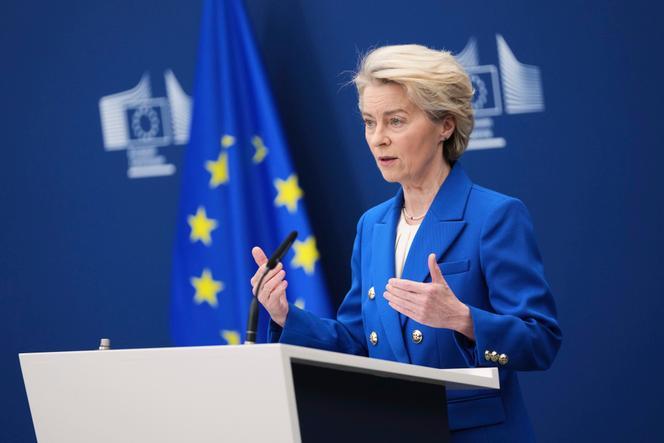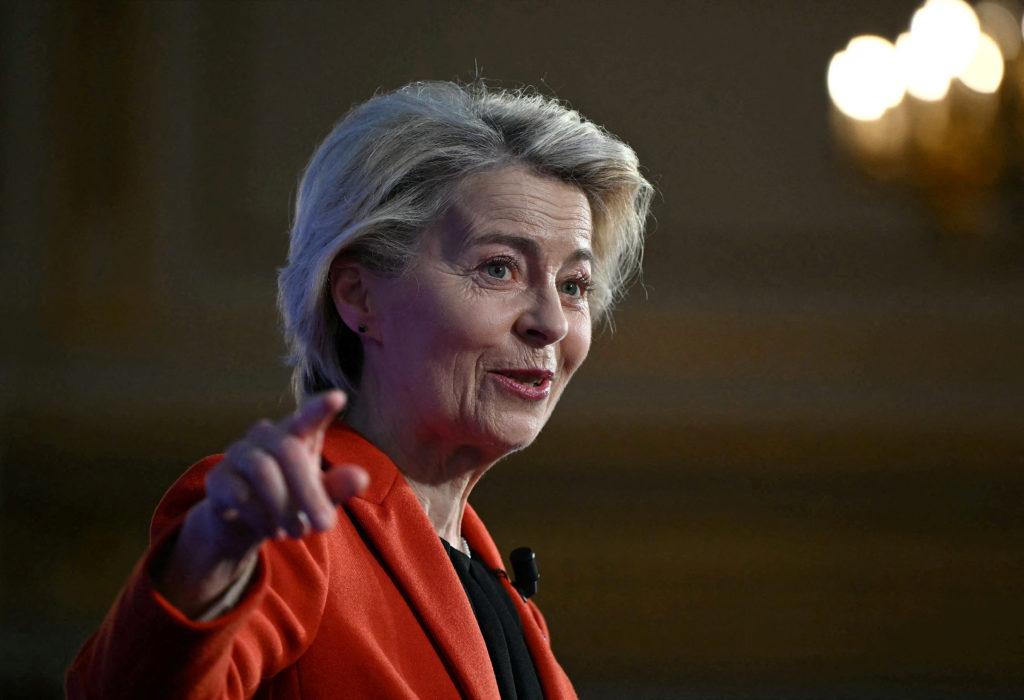EU Leader Calls for Unified Action Against Russian LNG Trade
In a bold move reflecting escalating tensions with Moscow, teh president of the European Commission has called for an immediate and coordinated response from EU member states to impose strict sanctions on Russian liquefied natural gas (LNG) exports. This call comes in the wake of heightened geopolitical strife and aims to deter Moscow from funding its military endeavors through energy sales. The urgency of the situation has sparked discussions among member states, with many recognizing the need to present a united front against Russia’s actions and minimize European dependency on Kremlin-controlled energy resources.
Key proposals being considered include:
- Total embargo on LNG imports: This measure aims to cut off a critically important revenue source for Russia, reducing its ability to finance ongoing military operations.
- Increased investment in renewable energy: To mitigate the impact of halting Russian LNG imports,EU leaders are advocating for faster diversification into sustainable energy alternatives.
- Support for affected communities: Economic assistance packages are being discussed to help regions that may suffer from the transition away from russian energy supplies.
Leaders from various EU nations have expressed a range of feelings on the proposed sanctions, acknowledging their potential short-term economic impacts but underscoring the strategic necessity of enhancing European energy security and standing firm against aggressions from Russia. The Commission’s concerted efforts signal a critical moment in the region’s energy policy as it endeavors to protect its sovereignty and promote collective resilience.

Economic Impacts: Assessing the Consequences of Sanctions on Energy Markets
The recent push by the EU chief to impose sanctions on Russia’s liquefied natural gas (LNG) exports underscores the significant economic ramifications tied to energy markets in the wake of geopolitical tensions. As one of the world’s leading exporters of LNG, Russia’s market presence plays a critical role in global energy supply chains. The potential sanctions are forecasted to have a multifaceted impact, not only on Russia’s economy but also on European nations heavily reliant on Russian energy. in particular, analysts have raised concerns over volatile energy prices, which may lead to an increased cost of living across the EU, especially in the colder months.
In response to potential sanctions, several key factors are being monitored closely to determine the true scope of economic impacts on energy markets:
- Market Diversification: Countries may seek option suppliers, accelerating investments in renewable energy sources or exploring deals with non-Russian LNG suppliers.
- Supply Chain Disruptions: Immediate sanctions could create voids in energy supplies, impacting industrial production and residential heating.
- Long-Term Investments: Fluctuating energy prices may deter investments in new projects, affecting long-term energy security.
Trade dynamics and international relations are primed for shifts, and the cascading effects on economies both within and outside Europe are likely to demand ongoing scrutiny.

Strategic Recommendations for Member States in Enforcing Sanctions
Considering the current geopolitical landscape, it is indeed imperative for member states to adopt a cohesive and robust approach to enforce sanctions on Russia’s LNG exports effectively. Strengthening international collaboration is essential. Member states should prioritize the following actions:
- enhance Information Sharing: Establish regular dialog channels among intelligence and customs agencies to monitor and report on LNG shipments accurately.
- Implement Targeted Legislation: Introduce extensive laws that specifically target the maritime transport of Russian LNG, closing any loopholes that might be exploited.
- Increase Enforcement Capacities: Allocate adequate resources to law enforcement agencies, ensuring they are equipped to detect and respond to attempts to circumvent sanctions.
Moreover, diplomatic engagement plays a crucial role in fortifying these sanctions. Member states ought to consider the following strategies:
- Collaborate with Allies: Work closely with non-EU partners to amplify the sanctions’ impact and discourage third-party countries from facilitating Russian LNG trade.
- Public Awareness Campaigns: Launch initiatives to inform businesses and the public about the sanctions, emphasizing compliance and the importance of supporting the EU’s unified stance.
- Regular Review of Sanctions: Continuously assess the effectiveness of sanctions, adjusting strategies based on geopolitical developments to ensure sustained pressure on Russia.

Navigating Energy Security: Alternatives to Russian LNG for the EU
As the European Union faces the pressing challenge of reducing its reliance on Russian liquefied natural gas (LNG), a pivot towards alternative sources is essential for bolstering energy security. Several countries and partners are stepping up to provide viable substitutes,each offering unique benefits to EU member states. Key alternatives include:
- Northern Africa: Countries like Algeria and Libya,with existing pipelines and LNG export capabilities,have the potential to supply significant volumes.
- United States: The U.S. has ramped up its LNG exports, offering a competitive alternative that aligns with EU diversification goals.
- Qatar: As one of the world’s leading LNG producers, Qatar presents another robust option for European nations looking to secure stable gas supplies.
- Renewables: Investing in renewable energy sources such as wind and solar power can reduce overall dependency on gas and contribute to long-term sustainability.
In addition to seeking alternative imports, the EU is called to enhance its domestic energy policies and infrastructure. Strengthening interconnections between member states and investing in energy storage solutions can alleviate shortages during peak demands. Prioritizing energy efficiency measures and fostering innovative technologies will not only mitigate the impact of potential sanctions on russian energy exports but also position the EU as a leader in global energy transitions. Collaborative efforts across borders will be crucial in creating a resilient European energy market that safeguards against geopolitical uncertainties.
